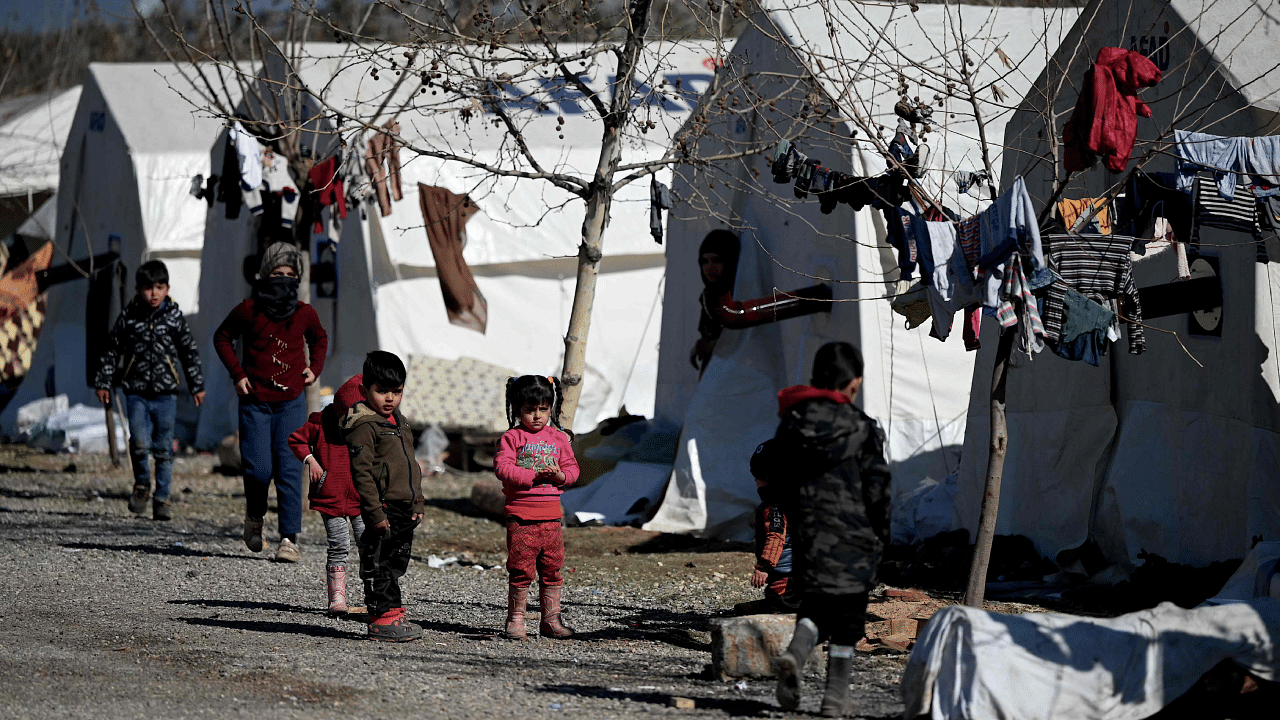
Turkey turned its focus to reconstruction on Wednesday, encouraging those in quake-hit areas whose buildings have been deemed safe to return home.
In neighbouring Syria's opposition-held northwest, which was already suffering from more than a decade of bombardment, the earthquake left many war-weary families fending for themselves amid the rubble, with international aid arriving slowly.
The combined death toll in the two countries has climbed over 41,000, and millions are in need over humanitarian aid, with many survivors having been left homeless in near-freezing winter temperatures, and rescues now few and far between.
In Turkey's southern Hatay province, half of the buildings have either collapsed, been heavily damaged, or need to be demolished quickly, Interior Minister Suleyman Soylu said.
But the government encouraged people to go back home - if they can, based on government checks.
"We want citizens to track their building's status on the online system and get back into the buildings which receive safe building report from the urbanisation ministry, in order to start getting back to normal," Tourism Minister Nuri Ersoy told a news conference in Malatya, some 160 km from the epicenter of the earthquake.
"We will quickly demolish what needs to be demolished and build safe houses," Environment and Urbanisation Minister Murat Kurum tweeted.
Meanwhile, Turkey's stock index soared almost 10 per cent on reopening after five days of earthquake-related closure as government measures to prop equities looked to be working, but analysts warned sentiment was fragile.
"You do have to question how strong underlying sentiment is and what investors would be doing if this official support were not there... I would also question how long the authorities can continue with this support given the fragile nature of official finances," said analyst Stuart Cole, head macro economist at Equiti Capital.
Late on Tuesday, Turkish President Tayyip Erdogan vowed to press on with rescue and recovery efforts, after nine were pulled from the rubble that day.
A 42-year-old woman was rescued from the rubble of a building in the southern Turkish city of Kahramanmaras on Wednesday, almost 222 hours after a devastating earthquake struck the region, Turkish media reported.
But UN authorities have said the rescue phase is coming to a close, with the focus turning to shelter, food and schooling.
'Get us out!'
The Turkish toll was 35,418 killed, Erdogan said. More than 5,814 have died in Syria, according to a Reuters tally of reports from Syrian state media and a UN agency.
In Syria, relief efforts have been hampered by a civil war that has splintered the country and divided regional and global powers. The single border crossing from Turkey to Syria was closed for days before UN trucks were allowed through.
On Tuesday, eight days after the quake, a second border crossing for aid delivery was opened after Syrian President Bashar al Assad gave his assent, marking a shift for Damascus which has long opposed cross-border aid deliveries to the rebel enclave.
But the move was met with scepticism and even anger by many residents of Idlib, where a bulk of the 4 million residents hail from other bombed-out provinces.
The trucks included none of the heavy equipment and machines that rescuers say they need to remove rubble faster – and that could have helped with reconstruction.
"What happened to us – it's the first time it's happened around the world. There was an earthquake and the international community and the UN don't help," said Raed Saleh, who heads the 'White Helmets' rescue force operating in opposition-held areas.
Walid Ibrahim lost more than two dozen of his family members – among them his brother, his cousin, and all their children. He only managed to remove their bodies from under the rubble two days after the quake.
"We were removing rock after rock and finding nothing underneath. People were under the concrete screaming, 'Get us out! Get us out!' But we'd come up with empty hands," he said. "Your hands alone aren't enough."